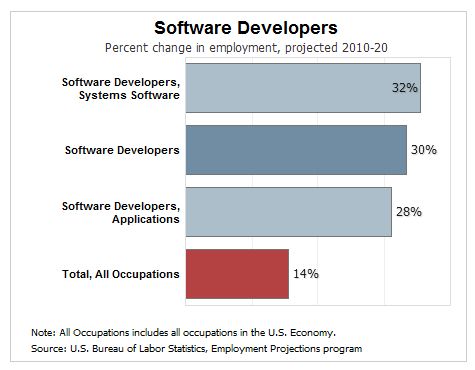Pebble, the smartwatch startup, offers a lineup of uncomplicated wearables that have caught the attention of a large group of die-hard users. After raising millions of dollars via Kickstarter, Pebble launched its first wearable in 2013; its latest product, the Pebble Time Round, features support for Android and iOS, and its screen can alert the wearer to everything from texts and calendar dates to incoming calls. Based in Redwood City, California, with an office in Waterloo, Canada, Pebble boasts 180 full-time employees, the majority of whom work on the core Pebble technology. Although Pebble leans heavily on SDKs, allowing anyone to build apps and design custom watch-faces, its core stack is very much its own. “We looked long and hard at various stack options,” said Mike Manoske, the company’s director of recruiting, “but we found that having our own stack allows us to meet the standards we set for our smartwatches.” Developers at Pebble build and maintain multiple products—notably smartwatch and smartphone apps—along with a Rails-based e-commerce environment. In light of that, the company is currently looking to fill positions for iOS and Android developers, as well as firmware engineers to work on the operating system and apps that power the watches. Other open positions include internal tool developers and full-stack Rails engineers to help with Website and e-commerce systems. Manoske is looking for people who’ve been through several full cycles of building, releasing, and maintaining mobile apps, noting that the company really values developers who’ve closely collaborated with UI and UX designers. Pebble also wants employees with a broad range of embedded and operating systems skills. “You’ll use them all,” he said, “C and C++, hands-on experience with RTOS’s, strong operating systems fundamentals, and Python knowledge are the core skills to be successful.” The company’s Ecommerce Development Team values developers with a deep experience in NodeJS, SQL, noSQL and a strong background working on high-volume, high-transaction sites. Developers with knowledge of Bluetooth technology, SQL or noSQL, Manoske added, could raise their chances of getting hired.
The Application Process
With its growth, Pebble has transitioned from hiring generalist developers to looking for more focused skill sets. When interviewers ask for minimum skill sets, they’re dead serious; there’s no wiggle room for those who don’t meet those requirements. The company’s interview process, while well mapped out, is still flexible if needed. Candidates will first talk with the recruiting team, where they’ll get good insight into the company, the team and the role. From there, team leaders will do a couple of phone or video screens. The interviews start with detailed technical questions and then move to a take-home coding test. If the take-home test is a success, Pebble brings candidates in—just one time. The interview takes approximately half a day and includes some white-boarding (often on architecture, design, or coding) and discussion about the team, the specific role, and the candidate’s passions, goals and aspirations. Manoske stressed that Pebble greatly appreciates candidates who can explain how their experience directly relates to the company’s products, projects and needs. That being said, he cautioned: “We have a lot of people applying who’ve done some tinkering with Wearables or Smartwatches, which is great. But Pebble asks candidates to not provide detailed design features.”
What Makes a Good Fit?
Pebble has a startup-like culture, but with enough structure to keep a lot of teams and projects moving ahead in a regulated way. They are committed to cross-team collaboration and use the “Squad” concept to work on key initiatives. Per Manoske, you will know how your contribution fits into the overall company plan, and you will have a voice in how new products and features are designed and deployed. “Pebble was the first smartwatch maker, so we’ve got several generations of products already released. But this technology is still so new,” he said, “you can’t help but come in and contribute.”
Advice for Experienced Professionals
“We love candidates who do their homework,” Manoske added. “Some examples are using our SDK or CloudPebble and playing with a Pebble app.” Check out Pebble’s development site for
documentation and assets for app-building.
Advice for New Graduates
The company hires new grads who have worked with wearables (and/or Pebble’s SDK). “We really value demonstrated passion, interest and hands on work with Smartwatches and wearables,” Manoske said. There’s also an Internship and Co-op program. The company sees this as a valuable tool toward training, educating and informing new generations of innovators and entrepreneurs. Those interested should keep an eye on the site for upcoming opportunities.



